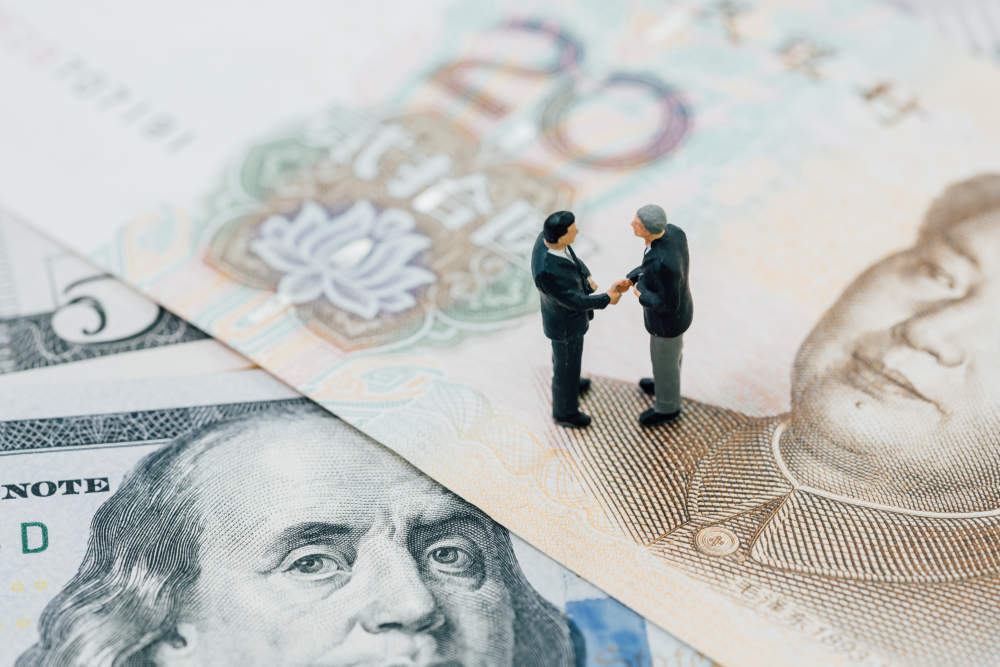
US President Donald Trump’s team are off to China this week to discuss the simmering trade tensions between the world’s two largest economies.
Trump announced yesterday that he will be sending some of his top economic advisers to China for talks “in a few days”. The delegation will include Treasury Secretary Steven Mnuchin and US Trade Representative Robert Lighthizer.

Access deeper industry intelligence
Experience unmatched clarity with a single platform that combines unique data, AI, and human expertise.
Delegation heading to China to begin talks on the Massive Trade Deficit that has been created with our Country. Very much like North Korea, this should have been fixed years ago, not now. Same with other countries and NAFTA…but it will all get done. Great Potential for USA!
— Donald J. Trump (@realDonaldTrump) May 1, 2018
The trip comes amid a worsening trade relationship between the US and China, which many fear may evolve into an all-out trade war.

US Tariffs are shifting - will you react or anticipate?
Don’t let policy changes catch you off guard. Stay proactive with real-time data and expert analysis.
By GlobalDataLast month, Trump unveiled plans for 25% tariffs on imports of 1,333 Chinese goods, worth an estimated $50 billion to the Chinese economy. China immediately hit back, proposing tariffs on $50 billion-worth of US goods.
This tit-for-tat bargaining quickly escalated further, with Trump declaring that the US was considering an extra $100 billion tariffs on China, and China saying it was prepared to take the US on “until the end at any cost.”
Now, Trump is edging closer to the time when he would have to enact the first set of $50 billion tariffs. If tariffs are enacted as planned by both sides, it could reduce US GDP by an estimated $2.9 billion and cost nearly 134,000 US jobs.
About 77,500 of those positions would be in states that voted Trump into power in 2016.
Will next week’s trade talks be able to prevent this scenario from occurring?
It’s hard to say. Trump has long-stated that his motivation for enacting tariffs on China in the first place was because of the trade deficit between the two nation.
The gap between Chinese goods imported to the US and American goods exported to China rose to $375.2 billion last year.
Chinese President Xi Jinping has indicated that China is prepared to address some of the grievances that the US has with its trade and investment policy and it is possible that the talks could result in a reduction of the trade deficit and the avoidance of tariffs.
However, Trump’s team is unpredictable, and many of the advisers in the delegation have widely different views on trade policy.
The global money markets will be watching the meeting in Beijing closely.







